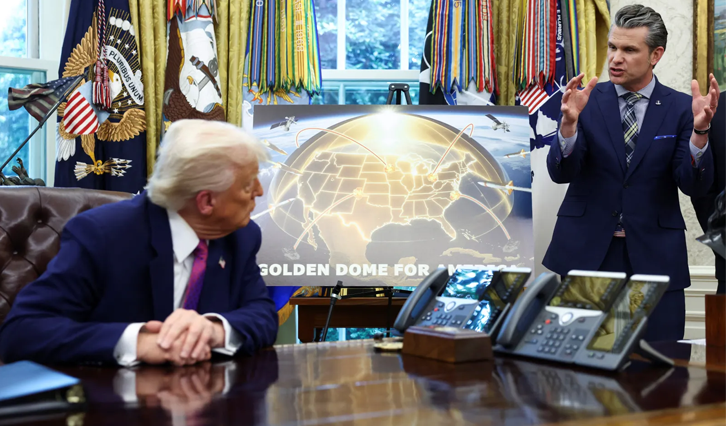In denial? Debating US nuclear strategy
Center for Nuclear Security Policy Director Vipin Narang and Senior Nuclear Fellow Pranay Vaddi debate US nuclear strategy and nuclear deterrence with Robert L. Gallucci.
Center for Nuclear Security Policy Director Vipin Narang and Senior Nuclear Fellow Pranay Vaddi debate US nuclear strategy and nuclear deterrence with Robert L. Gallucci.

U.S. President Donald Trump and Defense Secretary Pete Hegseth, Washington, D.C., May 2025
We agree with Robert Gallucci that the risk of a nuclear arms race must be considered when presidents make decisions regarding nuclear strategy, policy, posture, and capabilities. But it is not the United States that is drastically expanding its nuclear arsenal or introducing new and destabilizing capabilities; China and Russia are doing so. Both continue to enhance their strategic and nonstrategic arsenals, with China developing fractional orbital bombardment systems—weapons placed in low-earth orbit to elude missile defenses—and Russia seeking nuclear-powered cruise missiles and nuclear-armed antisatellite weapons, among other capabilities. All these present new deterrence challenges that demand a new approach from the United States. Business as usual will threaten American national security.
Moreover, preserving the imperative of damage limitation—a core component of U.S. nuclear strategy for almost three-quarters of a century—does not require the United States to mirror either China’s or Russia’s approach. We propose modest adjustments that are consistent with decades of U.S. nuclear thinking and that do not expand the U.S. stockpile. We do so as we prioritize stable deterrence and reducing the risk that a nuclear weapon will be employed by any actor. Arms races do not by themselves increase the risk of deterrence failure; unchecked asymmetries in arms competition do.
Finally, we note that nuclear deterrence cannot be managed solely by changes to U.S. nuclear posture. Arms control policy will remain essential, and serious U.S. nuclear strategists should support diplomatic measures that promote stable deterrence. U.S. administrations must create incentives for adversaries to engage in nuclear diplomacy. But at the moment, it is China and Russia that are unwilling to enter those discussions, not the United States.